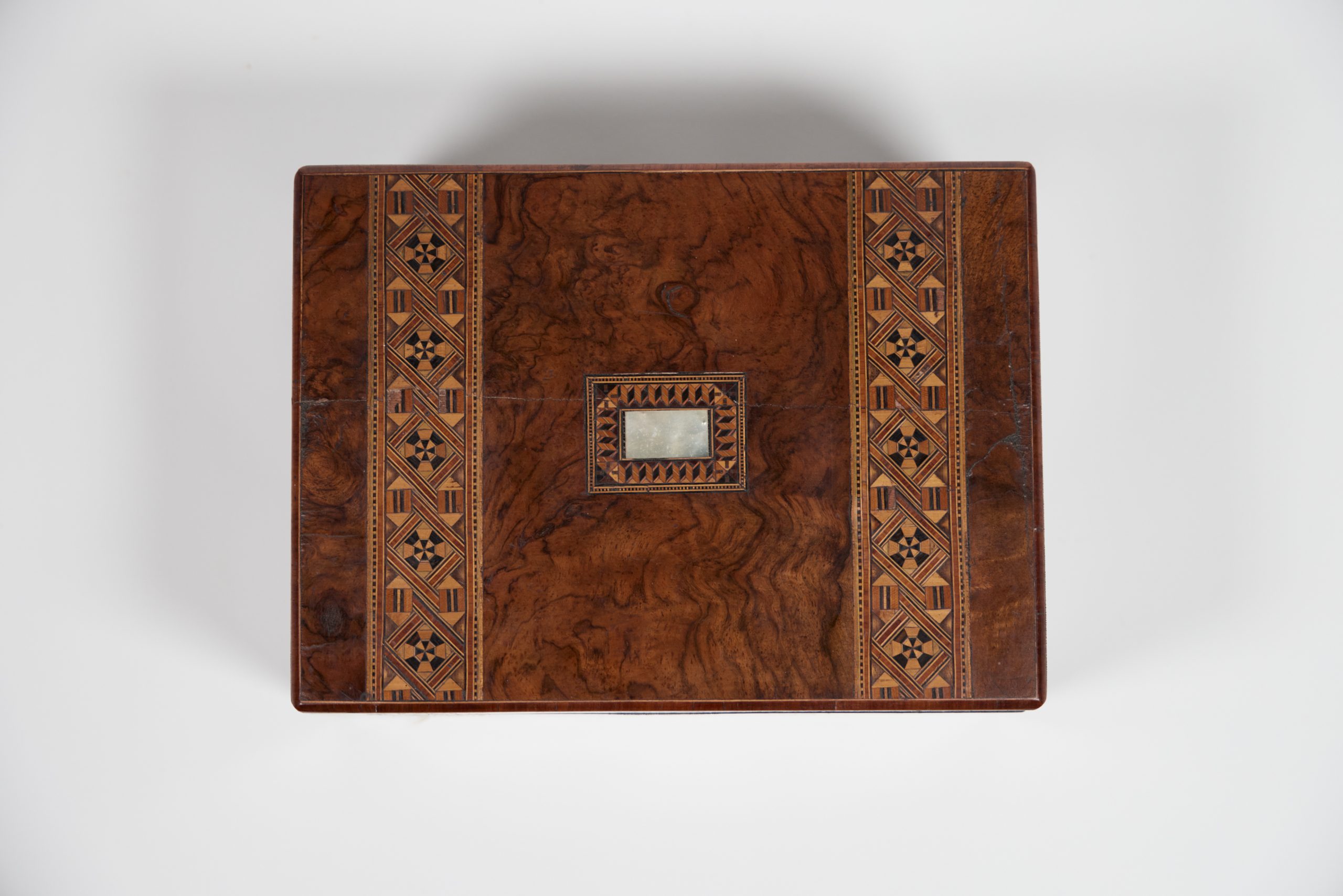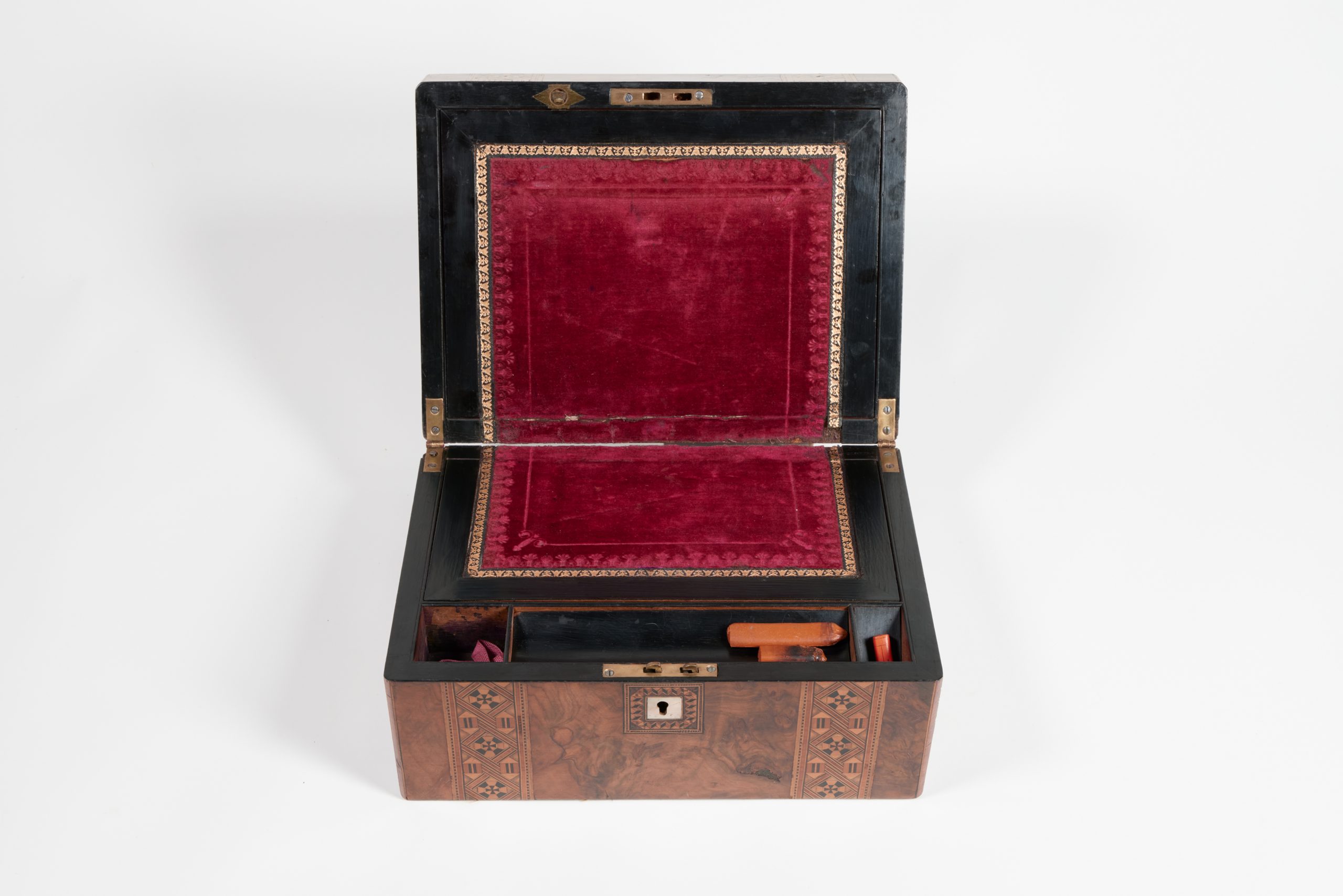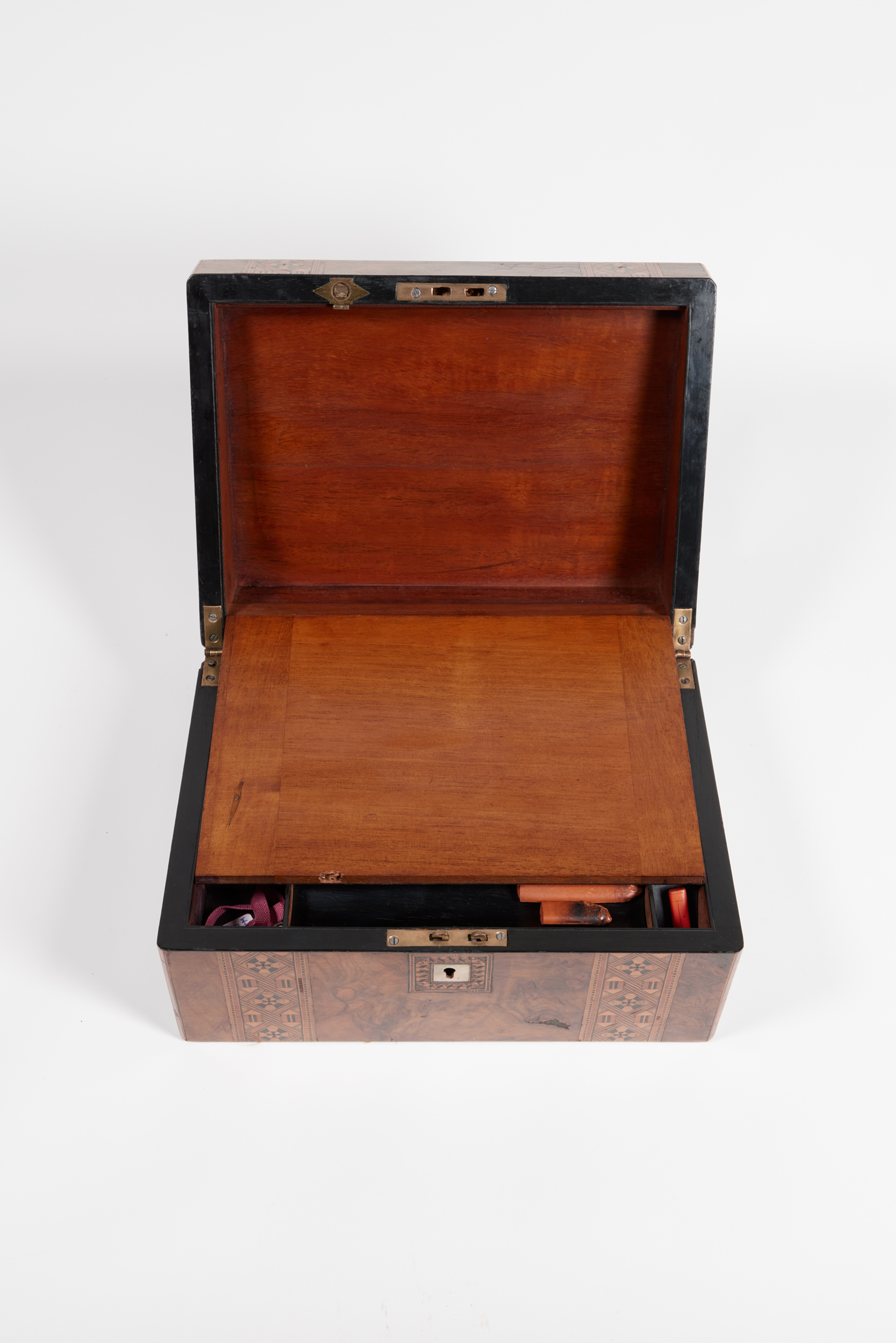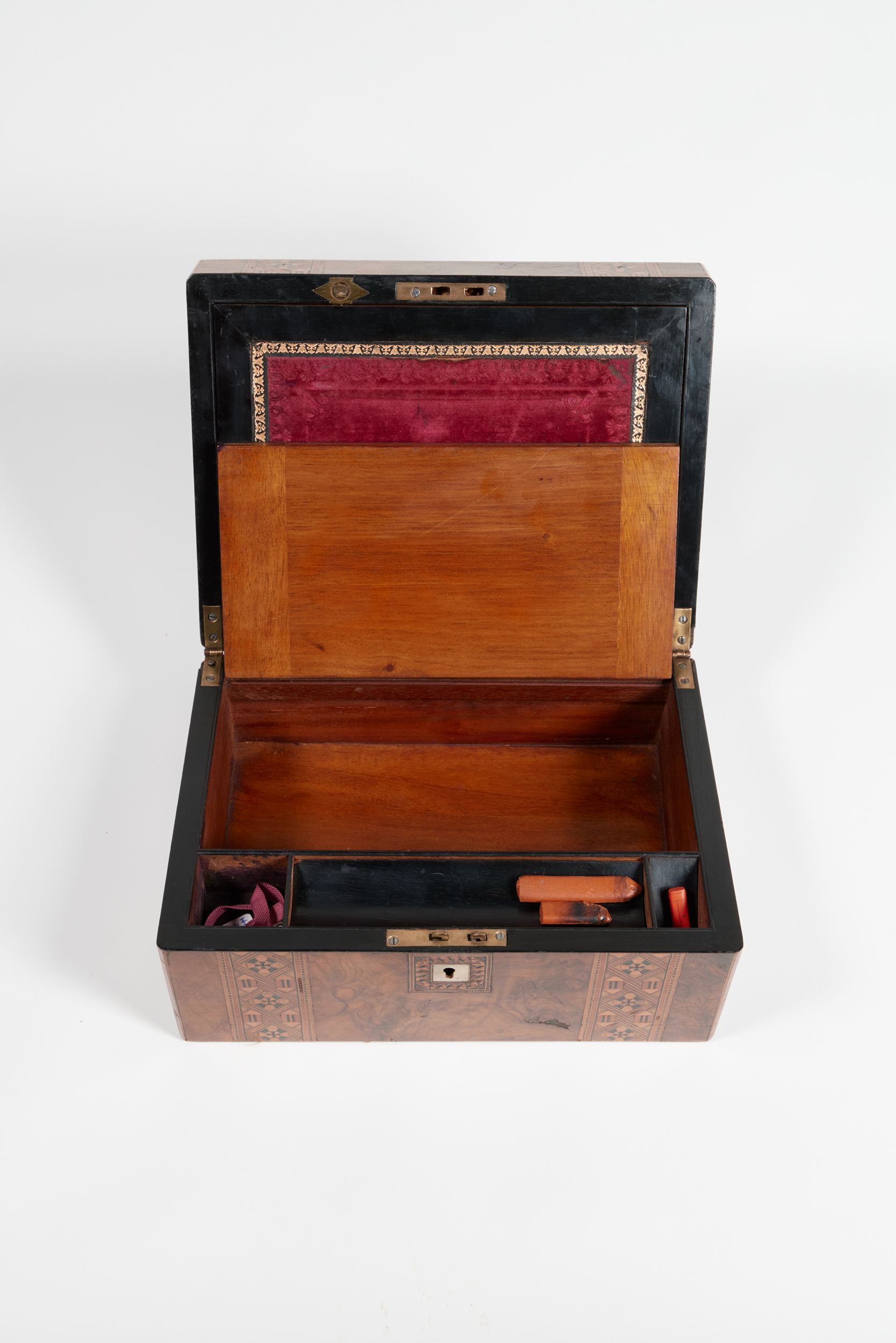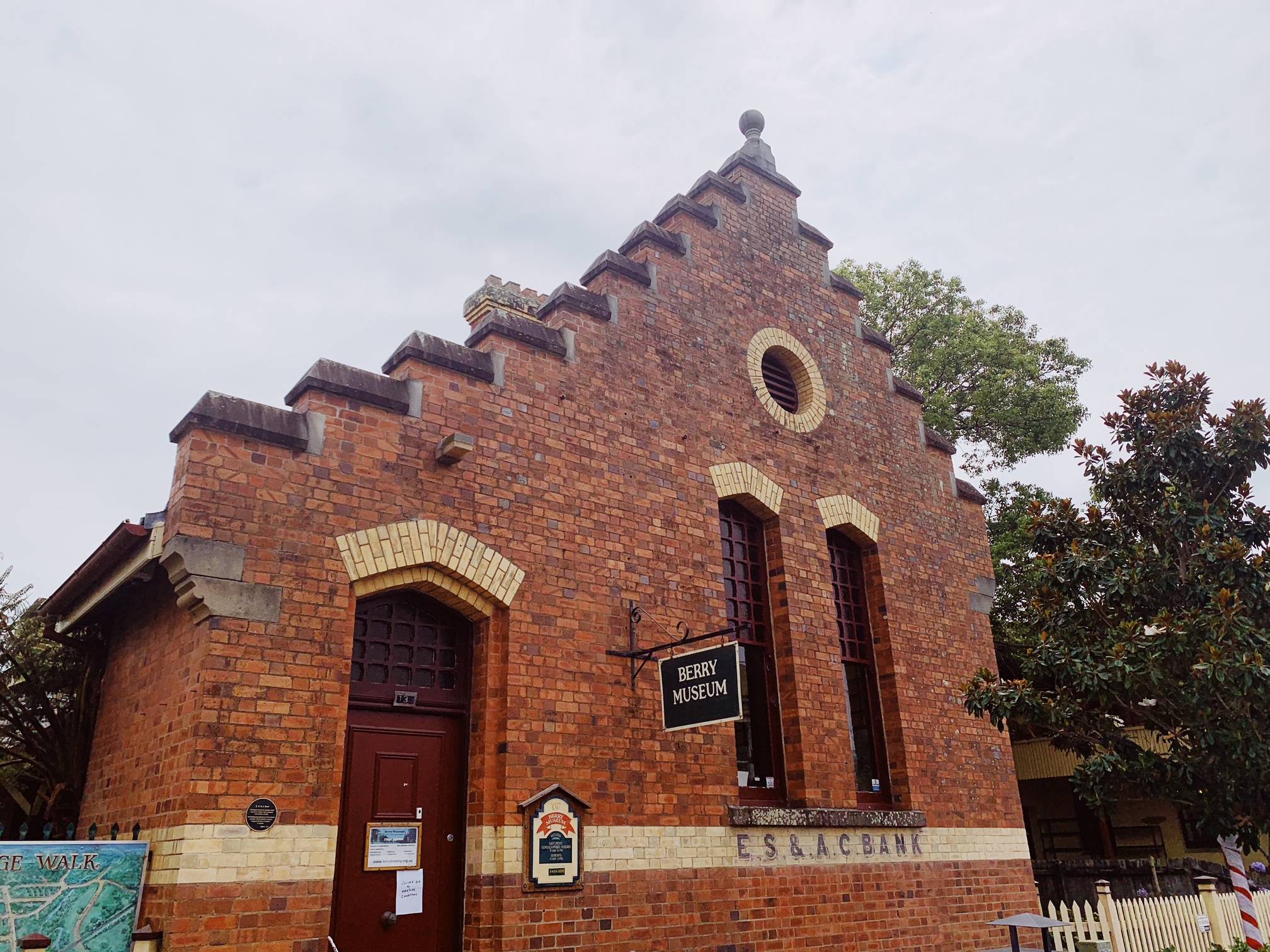Literacy is Power
The Hanlon Family Writing Slope
The laptop of its day, this portable writing desk allowed the writer freedom to move around. Perfect for use next to an open fire or beneath a shady tree in one’s garden, its lower compartments tidily held ink, paper and pens.
This late nineteenth-century example belonged to Alexander (1837-1915) and Ann Hanlon (nee Boyd) (1839-1929). Both migrants from Donegal, Ireland, they married in 1864 at Broughton Vale (later named Berry). Two years later, they established a dairy farm at Woodhill, a fertile area in the mountains between Berry and nearby Kangaroo Valley.
In the nineteenth century, literacy was not a given among migrant populations in rural areas of Australia. For occupations like housemaids, labourers, farmers or shepherds, being able to read and write was not necessary for survival, though some would require basic literacy skills for recording notes and figures in a log or journal.
However, to rise into the upper or governing class, being literate was essential. Though Alexander and Ann were both from farming families, they came to the colony as literate migrants – a skill which put them in good stead.
Both the Hanlons and the Boyds became well known families in the region because of their involvement in local government and the Methodist Church. Between 1871 and 1900, both last names were regularly listed in the local press alongside members of Council (i.e. returning officer, auditor, and alderman), with Alexander even becoming mayor.
Another key benefit of literacy for this family was the ability to bridge the distance to friends and loved ones through writing personal letters. Many letters, detailing the Hanlon family’s life-events, hopes, and worries, were composed on this portable desk before travelling to eager readers across land and sea.




